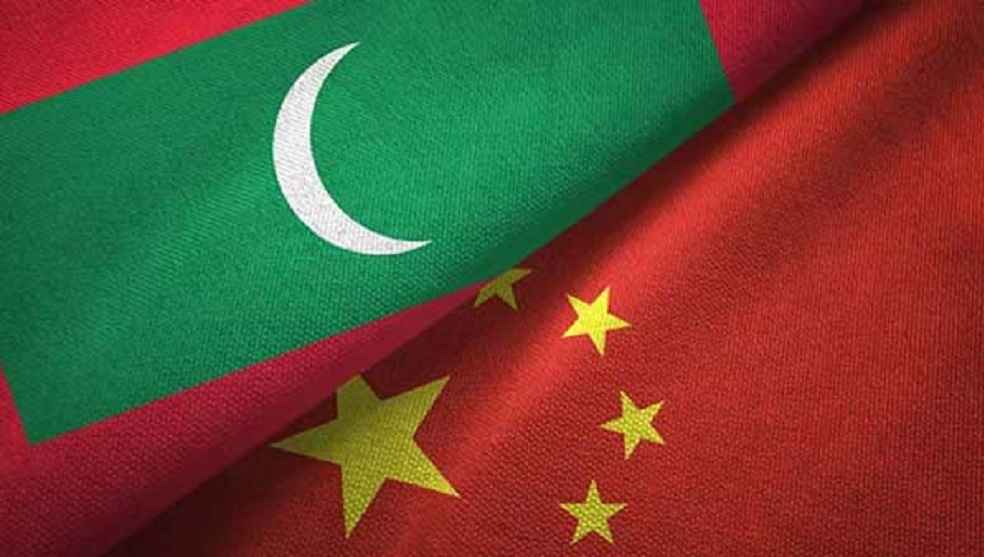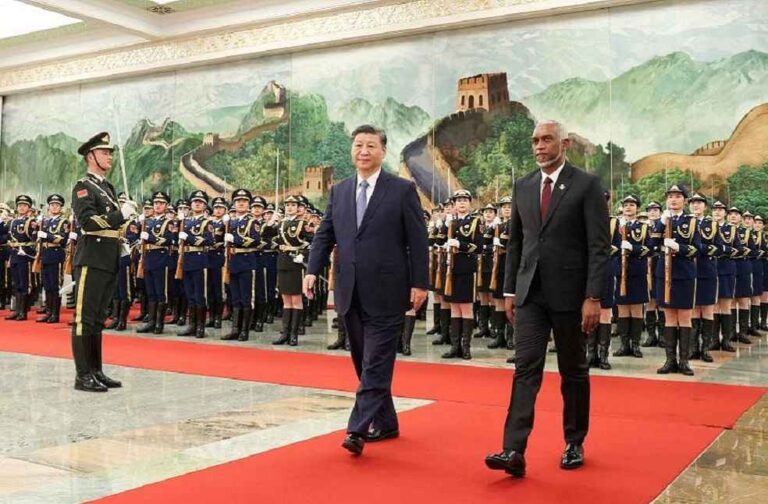The new military assistance agreement between the Maldives and China heralds a nuanced recalibration of power dynamics within the Indian Ocean, illustrating a profound deepening of bilateral military ties. Under President Mohamed Muizzu’s stewardship, the Maldives is set to acquire complimentary ‘non-lethal’ military apparatus alongside specialized training from the Chinese military, an announcement that underscores a deliberate pivot towards enhancing national sovereignty and autonomy against the backdrop of regional geopolitical tensions.
Engagements between President Muizzu and high-level Chinese officials, including Major General Zhang Baoqun of the International Military Cooperation Office and Ren Shengjun, President of the Export-Import Bank of China, underscore a mutual commitment to advancing strategic and defense collaboration.

These interactions culminate in a pledge for future partnership endeavors, marking a pioneering chapter in Maldivian-Chinese military relations, distinct from Beijing’s prior focus on economic and infrastructural support to the archipelago.
This inaugural military cooperation pact, shrouded in confidentiality, was confirmed by the Maldivian Defence Ministry, spotlighting a nuanced shift from traditional economic aid to substantive military engagement. President Muizzu, recognized for his alignment with Beijing, articulated the essence of the agreement during a discourse in Dhaalu Atoll Meedhoo.
President emphasized the elevation of the Maldivian military’s technical prowess through diversified training and the provision of non-lethal equipment, including tear gas and pepper spray, thereby fortifying defense capabilities towards self-reliance and sovereign integrity.

The accord reflects not only a fortification of Maldivian defense infrastructure but also reiterates the robust bilateral relations harbored between China and the Maldives, evidenced by numerous Chinese-led development projects like the China-Maldives Friendship Bridge and multiple social housing endeavors.
President Muizzu’s Beijing visit, where engagements with Chinese President Xi Jinping took precedence, represents a deviation from the erstwhile norm of Maldivian leaders making their inaugural foreign visit to New Delhi, symbolizing a strategic realignment in international affiliations.
Concurrently, President Muizzu’s declaration of an impending cessation of Indian military presence on Maldivian soil post-May 10, subsequent to his directive for the withdrawal of Indian military personnel, encapsulates a broader strategy of recalibrating the Maldives’ external military liaisons and underscores the evolving tapestry of Indian Ocean geopolitics.
LATEST NEWS | Morocco and Switzerland Elevate Trade with Bold Economic Partnership



